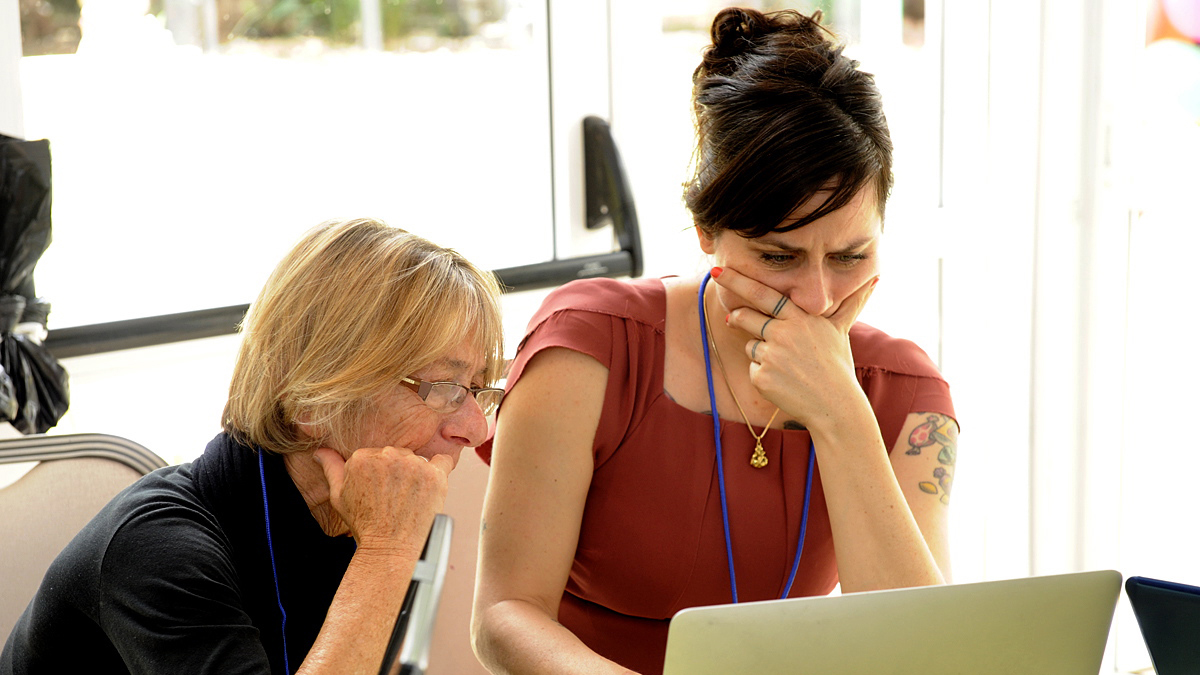I was surprised when my friend was terminated from an organization where we both worked for several years. She was a hard worker—always first to volunteer to do thankless tasks and the last to leave the office each day.
"That's what cost me my job," she said. "I thought I was being a good witness for Christ by serving as the office doormat. People wipe their feet on doormats."
She had raised her two children as a single mother, earned her college degree at night, and had once been active in local politics. But at work, she hid the brightest parts of herself under a bushel so she could focus on serving her coworkers. What she saw as shining the light of Christ in the office actually was stifling any aspiration for advancement.
This friend's desire to do Something Big For God was a heroic-sounding case of self-sabotage in the name of Christ. Self-sabotage can be loosely defined as the way in which a person works against her own best interest. Our work, school, and church cultures tend to affirm in women some of these unhelpful patterns of thinking and relating to others by trying to convince us that those self-sabotaging practices are virtues. They're not.
Self-sabotage can take obvious forms, like self-injury or addiction. But for most of us, we work against ourselves in far more subtle ways: being perfectionists, avoiding conflict, procrastinating, focusing on the trivial. In the case of my friend, a seemingly noble quest to serve others communicated to her superiors that she was a nice enough woman capable only of handling trivial tasks.
Many women first learn the art of self-sabotage when they're growing up. Heidi Grant Halvorson described a study comparing the way in which bright fifth-grade girls and boys responded when they were presented with challenging material to master. The brighter the girl was, the more helpless her response tended to be. Grant Halvorson said, "The only difference was how bright boys and girls interpreted difficulty – what it meant to them when material seemed hard to learn. Bright girls were much quicker to doubt their ability, to lose confidence, and to become less effective learners as a result."
Consider the ways adult women defeat themselves in the workplace as well as in personal relationships: lacking boundaries with coworkers; settling for an unclear purpose, identity or both; waffling on commitments; or allowing the emotion of the moment to drive your actions.
Sheryl Sandburg, Facebook exec and author of last year's publishing hit Lean In: Women, Work and the Will to Lead (discussed here and here on Her.meneutics), described the lie behind the myriad ways we undermine our own success:
Instead of feeling worthy of recognition, they feel undeserving and guilty, as if a mistake has been made. Despite being high achievers, even experts in their fields, women can't seem to shake the sense that it is only a matter of time until they are found out for who they really are – impostors with limited skills or abilities.
In the Christian community, we baptize our self-sabotage in the language of humility. Speaker and author Jennie Allen rightly observed in our rush to categorize every form of ambition as sin, we succumb to the temptation to mute or bury the spiritual gifts God has given us, particularly when those gifts involve some form of leadership or visible public ministry.
Allen suggests the antidote to the poisonous temptation to acting as our own worst enemy is to embrace our desire to do Big Things for God: "Every one of us was made to do great things, and it is why something in us feels restless and discontent. Because deep down, we know we were created for some great purpose. And these great things we were built to do are for God, through God, and in God."
I appreciate Allen's words, but I've come to believe that motivational messages like these aren't enough to remedy our self-sabotage habit. Sometimes we let them fuel our counter-productive behaviors. Believing the truths that we are made in the image of God and that we must seek to make meaning from our lives on this side of Eden, our well-intentioned service can turn to self-sabotage in a heartbeat. Worse yet, it can go rogue and sabotage others.
Jesus came to rescue and restore broken, trapped, imprisoned self-sabotaging people like you and me. I've come to recognize that doing great (or small!) things for, through and in God will not automatically stop me from booby-trapping my own life. It is the doing, in fact, that often keeps the spiritual merry-go-round spinning. He has come to uproot that crop of busy-busy ragweed from our hearts and make us whole.
Paradoxically, we are far less prone to wreck havoc on our own vocational life or in our service to others if we aren't trying so crazy hard to dream impossible dreams, to do something Big For God, or convince ourselves that we aren't the imposters that deep down inside we're afraid we are – because we are becoming the people God has created us to be instead.









